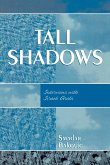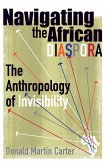More than forty years ago a women's liberation movement called ¿man ribu was born in Japan amid conditions of radicalism, violence, and imperialist aggression. Setsu Shigematsu's book is the first to present a sustained history of ¿man ribu's formation, its political philosophy, and its contributions to feminist politics across and beyond Japan. Through an in-depth analysis of ¿man ribu, Shigematsu furthers our understanding of Japan's gender-based modernity and imperialism and expands our perspective on transnational liberation and feminist movements worldwide. In Scream from the Shadows, Shigematsu engages with political philosophy while also contextualizing the movement in relation to the Japanese left and New Left as well as the anti-Vietnam War and radical student movements. She examines the controversial figure Tanaka Mitsu, ¿man ribu's most influential activist, and the movement's internal dynamics. Shigematsu highlights ¿man ribu's distinctive approach to the relationship of women-and women's liberation-to violence: specifically, the movement's embrace of violent women who were often at the margins of society and its recognition of women's complicity in violence against other women. Scream from the Shadows provides a powerful case study of a complex and contradictory movement with a radical vision of women's liberation. It offers a unique opportunity to reflect on the blind spots within our contemporary and dominant views of feminism across their liberal, marxist, radical, Euro-American, postcolonial, and racial boundaries.








